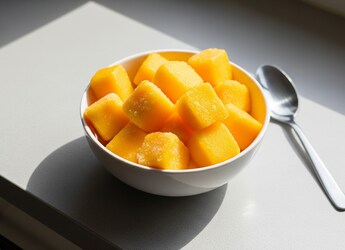In a step towards preserving Kerala’s agrarian heritage, the age-old tradition of drying tapioca — locally known as Kappa Vaattu — has been included in the Class 8 Malayalam textbook. This unique cultural practice, once a symbol of food security and community bonding in Kerala’s hilly regions, now finds a place in the curriculum to educate students on the State’s farming legacy.
The textbook features an article titled “Kappa Vaatinte Katha” (The Story of Drying Tapioca) by writer Muralidharan Thazhakkara, which explores the historical and cultural roots of tapioca farming. “Fish and tapioca were once the staple diet of hardworking farmers. Tapioca farming, once dominant in Kerala’s high ranges, gradually spread to Malabar during the early settlement period,” the article notes.
The entire process
It vividly describes how, during the December–January season, villagers—young and old — came together to dry tapioca. While women peel the tubers, men slice and lay them out on large rocks or baskets to dry under the sun. The dried tapioca, carefully stored, ensures food security for families through the year.
P. Satyaneshan, Chairperson of the State Council of Educational Research and Training (SCERT), emphasised the article’s inclusion as part of a broader effort to instil farming awareness among students. “We’ve included three farming-related topics in the syllabus. Kappa Vaattu isn’t just about food—it represents a way of life rooted in resilience and cooperation,” he said.
Cultural significance
Academic Coordinator of SCERT M.T. Sasi highlighted the cultural significance of the move: “Kappa Vaattu isn’t just a food preservation technique—it’s a powerful narrative of agrarian wisdom, social harmony, and sustainable living.” He credited teachers Priya R. and Anoop Lal C.K. for recommending the inclusion.
Adding a visual dimension to the lesson, drawing teacher Prasad Kumar K.S. of Palakkad illustrated traditional scenes of tapioca drying for the textbook, bringing the practice to life for young learners.
Writer Manoj Mathirappally, in his book “Idukki – Desham Charithram Samskaram,” notes that tapioca was the lifeline of the early settler farmers in regions like Upputhara near Ayyappankovil in the 1910s. “Drying tapioca wasn’t just a method—it was a culture. For decades, the farmer’s diet featured dried tapioca and dried fish, a testament to their enduring spirit,” he writes.
By turning this tradition into a classroom lesson, Kerala is not just teaching history — it’s reviving a living heritage.
Published - May 30, 2025 08:10 pm IST



.png)
.png)
.png)
















 1 week ago
8
1 week ago
8










 English (US) ·
English (US) ·